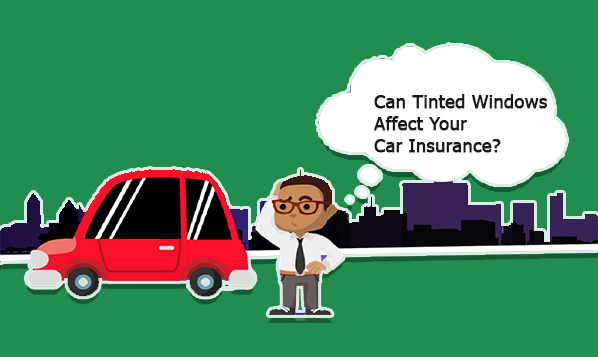Applying a film or coating to a car’s windows to darken the glass is known as car window tinting. This film enhances car privacy, reduces heat, and protects against harmful UV rays by reducing the amount of sunlight and UV rays entering the car. However, can tinted windows affect your car insurance?

Depending on the insurance company and local laws, tinted windows may or may not affect car insurance. It’s advisable to inform your insurance provider about any modifications you make to your car, even though tinted windows aren’t directly impacted by coverage. It may result in coverage problems or claim denials if changes are not disclosed.
How Is Tinted Window Estimated
The amount of light that can flow through tinted windows, known as visible light transmission (VLT), determines the tint level. The amount of light that can enter the window decreases with increasing VLT. A tint meter is utilized by law enforcement and auto professionals to calculate the VLT, providing a percentage reading of light pass-through.
Is Tinted Window Legal
The legality of window tinting is determined by state laws; the permissible legal VLT levels vary from state to state. Different VLT limitations are frequently imposed for the front-facing windshield, rear windows, and side windows. State window tinting regulations specify permissible VLT levels and reflectivity levels for each side of an automobile.
Furthermore, certain states have regulations regarding tint reflection, metallic tints, and the requirement of dual-side mirrors for back-tinted windows. Therefore, it’s crucial to ensure your window tinting adheres to local laws or seek legal advice as state laws are subject to annual changes.
How Tinted Windows Can Affect Car Insurance
Imagine being pulled over by a police officer for having too dark windows while driving. However, receiving the ticket can make your auto insurance more expensive. If your auto insurance covers damage to tinted windows, that’s another thing to think about. You will need to obtain aftermarket parts and equipment coverage if you applied the tint after you bought the car.
Benefits of Tinted Windows
Many people seek affordable car tinting near them due to its benefits like improved privacy and reduced light. The following are some advantages of window tinting:
- Ensuring your car’s visibility during parking can reduce the risk of theft and theft of valuables.
- Improving privacy.
- Minimizing the gradual, natural deterioration of your car’s interior brought on by sunshine.
- Visual appeal.
- Limiting the driver’s or passengers’ exposure to sunlight.
Can I Get a Ticket for Tinted Windows
If your window tint color is darker or wider than the state’s allowed range, you may be issued a ticket. Be aware of each state’s window tinting restrictions when you travel state lines. Just because you live in a state with different laws doesn’t mean that police officers have to waive window tint tickets. Also, maintain a document in your glove box that details the VLT percentage of your windows. If a police officer asks how much window tinting you have, you can show them the documentation.
How Much is a Tinted Window Ticket
The fine for window tint tickets varies by state and is often determined by the number of tickets received. For instance, a first ticket in California usually only carries a $25 fee. However, the next ticket may result in a penalty of up to $200, potentially increasing with each subsequent ticket until the issue is resolved.
Can Tinted Windows Ticket Affect Car Insurance
Insurance premiums are unlikely to be affected by a single window tint ticket, but accumulating multiple tint-based tickets may lead to an insurer raising your price. Also, moving violations or accidents are of greater concern to insurance companies. However, insurance companies may increase rates for non-moving infractions, like tint tickets, indicating non-compliance with vehicle regulations.
Does Car Insurance Cover Tinted Windows
Yes, if a covered peril damages windows tinted by the manufacturer, comprehensive insurance will probably cover the damage. Additionally, collision coverage will probably cover replacement if the windows are damaged in an accident. After-purchase window tinting may require additional custom parts and equipment (CPE) insurance for replacement or repair.

